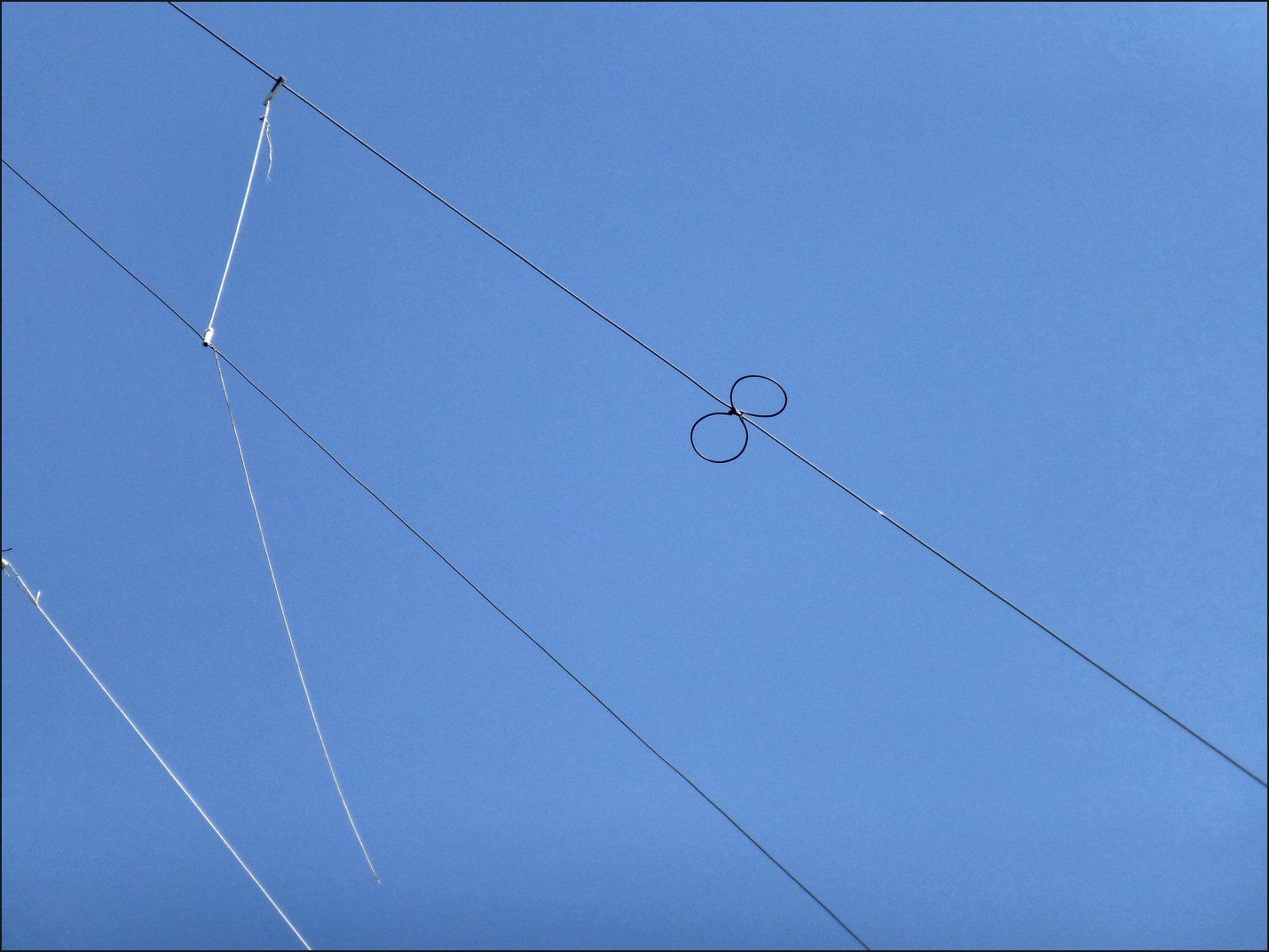Capacity hat: Difference between revisions
No edit summary |
m (Added top hat photograph, but it needs to be re-sized) |
||
| (2 intermediate revisions by one other user not shown) | |||
| Line 1: | Line 1: | ||
'''Capacity Hats''' | '''Capacity Hats''' | ||
| Line 9: | Line 8: | ||
It is true if you put a Capacity hat on top of a short mobile antenna it will change the antennas efficiency but what happens is the current on the radiating element moves further up to the top. | It is true if you put a Capacity hat on top of a short mobile antenna it will change the antennas efficiency but what happens is the current on the radiating element moves further up to the top. | ||
Because the current is now further away from ground this lowers ground | Because the current is now further away from ground this lowers ground loss. So the ratio of radiation resistance to ground loss and Omni Loss resistance, which is the reduction in the amount of inductance needed for the loading coil, goes down. | ||
Although it is true that the input impedance of antennas using Capacity Hats is higher than coil loaded antennas this is not an indication of an increase in radiation resistance, for the same reason that a folded dipole with 300 ohms impedance has the same radiation resistance as a standard 73 ohm dipole . | Although it is true that the input impedance of antennas using Capacity Hats is higher than coil loaded antennas this is not an indication of an increase in radiation resistance, for the same reason that a folded dipole with 300 ohms impedance has the same radiation resistance as a standard 73 ohm dipole. | ||
[[File:15m_tophat_P1020593.JPG | frame | Figure 1: Capacitive hat added to 40-meter wire dipole elements lower resonant frequency so that it lies within the 15-meter band. Source: KJ6YVT ]]Related Wiki pages: [[Antennas]], [[Electronic Theory]] | |||
{{antennas}} | {{antennas}} | ||
Latest revision as of 05:41, 20 August 2013
Capacity Hats
by Lou Rummel KE4UYP
Capacity hats will reduce the amount of inductance necessary to resonate the antenna, and increase bandwidth. But contrary to popular belief they add nothing to the radiation resistance. For a component of an antenna to increase radiation resistance it must itself radiate.
It is true if you put a Capacity hat on top of a short mobile antenna it will change the antennas efficiency but what happens is the current on the radiating element moves further up to the top.
Because the current is now further away from ground this lowers ground loss. So the ratio of radiation resistance to ground loss and Omni Loss resistance, which is the reduction in the amount of inductance needed for the loading coil, goes down.
Although it is true that the input impedance of antennas using Capacity Hats is higher than coil loaded antennas this is not an indication of an increase in radiation resistance, for the same reason that a folded dipole with 300 ohms impedance has the same radiation resistance as a standard 73 ohm dipole.
Related Wiki pages: Antennas, Electronic Theory
| Antennas | |
| Design | Beam * Dipole * Dish or Parabola * DDRR * Log Periodic (LPDA) * Loop * Mobile and portable * Omnidirectional * Panel * Quad and Quagi * Screwdriver * Small tuned loop * Vertical * Yagi-Uda * Wire and random wire antennas |
| Installation | Antenna Tuners * Capacity hats and loading coils * Cavity filters * Coaxial Cable * Feedlines * Rotators * Towers and Masts * VK2ACY - G5RV coupler |
| Theory | Front-to-back ratio * Impedance matching * SWR * Tower design * Vertical Antenna efficiency * Wire comparison tables |
